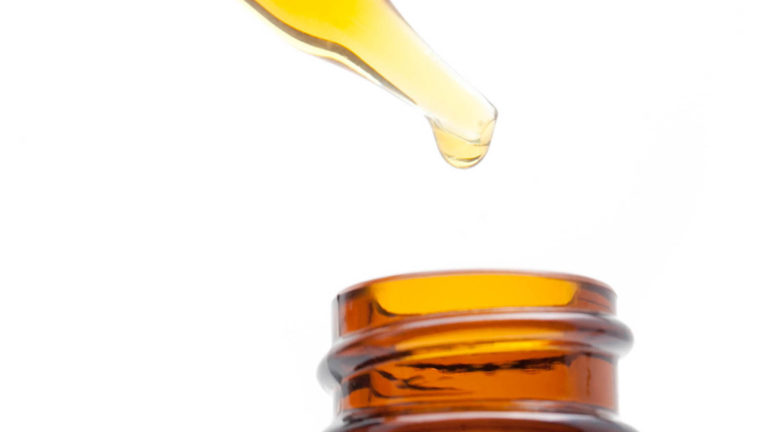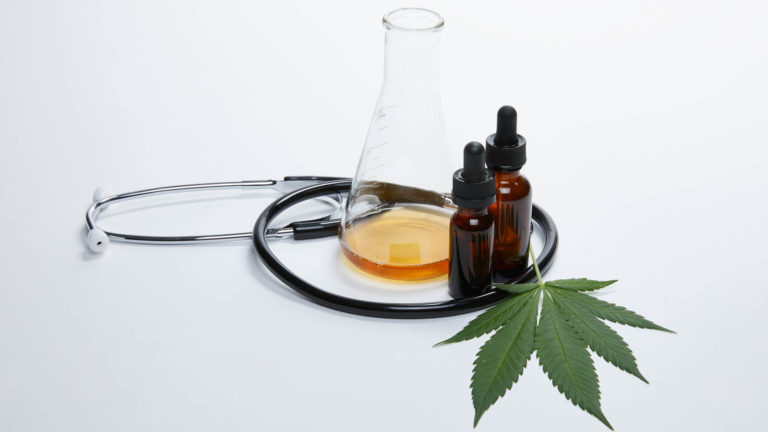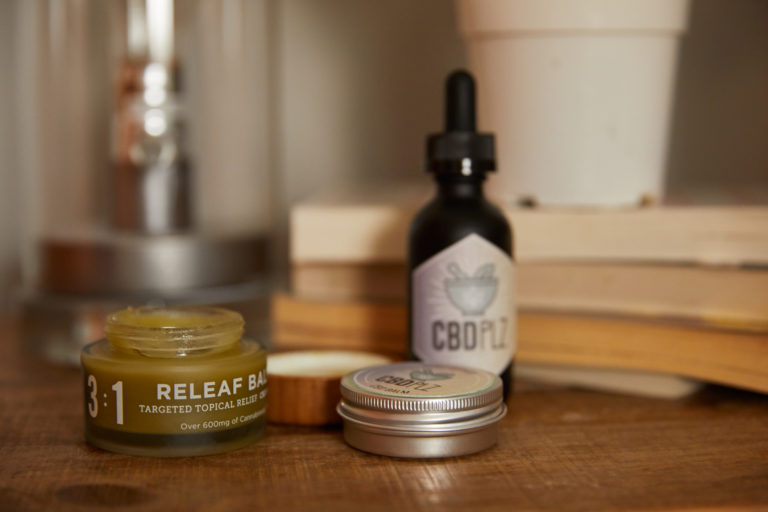Texas removed cannabidiol (CBD) with .3% or less of THC from its Schedule I controlled substances list in June of 2019 with the passage of House Bill 1325. As a result, licensed retailers may sell some hemp products with CBD if they also contain the THC within the legal limit. The state allows patients with certain qualifying conditions to use other medical formulations that contain CBD, and new conditions are currently under review.
What is CBD?
CBD stands for cannabidiol. It is a non-intoxicating cannabinoid found in cannabis. Cannabidiol is the second-most abundant cannabinoid in the plant after tetrahydrocannabinol (THC). It has many potential therapeutic benefits, including anti-inflammatory, analgesic, anti-anxiety, and seizure-suppressant properties. CBD can be sourced from both marijuana and hemp plants.
Combine THC and CBD to fully employ the entourage effect.
 Photo by: Gina Coleman/Weedmaps
Photo by: Gina Coleman/WeedmapsImage lightbox

Why is CBD sometimes illegal?
Even though hemp strains don't produce enough THC to cause intoxication, all types of cannabis, including hemp, were illegal under the 1970 Federal Controlled Substances Act. The legislation swept all cannabis into the Schedule I category, which defined cannabis as a substance with a high potential for abuse, no accepted medical use, and a likelihood for addiction.
The Hemp Farming Act of 2018 legalized hemp cultivation and created a legal distinction between hemp and marijuana. Hemp is cannabis that contains less than .3% THC by weight, and marijuana contains more than .3% THC. Hemp-derived CBD was thus descheduled by the bill, but CBD that is derived from marijuana, still a Schedule I substance, is considered federally illegal. While hemp is now considered an agricultural commodity, it must be produced and sold under regulations that implement the bill. The USDA has yet to create these regulations.
The Farm Bill also preserved the power of the Food and Drug Administration (FDA) to regulate CBD's labeling, therapeutic claims, and its use as a food additive. The FDA maintains that even hemp-derived CBD may not be added to food and beverages, nor marketed as dietary supplements. The FDA has begun a process of reevaluating its position on such CBD products, but it has yet to revise its rules or specifically regulate CBD products, leading to further confusion. The FDA has been strict when it comes to claims that could be construed as medical advice about CBD.
The federal government still highly regulates the production and sale of hemp, and its cannabinoids, including CBD. The Farm Bill allows for states to regulate or even prohibit CBD cultivation and commerce. In addition, states may attempt to regulate CBD food, beverage, dietary supplement, and cosmetic products, independently of the FDA finalizing its views on such products.
Texas CBD laws
The Texas Department of State Health Services formally removed CBD from the Schedule I controlled substances list on April 5, 2019, following the adoption of the 2018 Hemp Farming Bill, which federally removed CBD from the category.
On June 10, 2019, Republican Gov. Greg Abbott signed House Bill 1325, which established broad regulations for hemp production, cultivation, and testing. The bill sought to create rules to match the federal definition of hemp-derived CBD products.
 Photo by: Gina Coleman/Weedmaps
Photo by: Gina Coleman/WeedmapsImage lightbox

Access to CBD in Texas requires patients go through a strict medical process that is available only to people with severe illnesses. The Texas Compassionate Use Act legalized CBD with .5% THC or less for patients with:
- Autism;
- Amyotrophic lateral sclerosis (ALS), or Lou Gehrig's disease;
- Incurable neurodegenerative disorders;
- Intractable epilepsy;
- Spasticity;
- Multiple sclerosis;
- Seizure disorders;
- Terminal cancer.
When the Texas Health and Human Services Commission adopts rules on the qualifying diseases, more incurable neurodegenerative disorders may be added to the list.
The only FDA-approved of CBD by the is GW Pharmaceuticals' Epidiolex.
Licensing requirements for CBD
Patients with qualifying conditions may apply for a medical CBD card though the Texas Compassionate Use Program.
The Texas Department of Agriculture (TDA) approved the proposed State Hemp Plan in January 2020, and the rules and regulations for the cultivation and licensing of hemp growers, processors, and manufacturers have been added to the Texas Administrative Code.
Applications to produce hemp are available on the Texas Department of Agriculture website, and potential applicants are encouraged to contact their TDA regional office.
Texas' definition of consumable hemp products includes foods, drugs, devices or cosmetics that contain industrial hemp or hemp-derived cannabinoids, including CBD, with no more than 0.3% THC. The Texas Department of State Health Services (DSHS) is creating a registration process for retailers to sell consumable hemp products with CBD.
Texas CBD possession limits
Possession of CBD is legal in Texas, as long as it falls under the .3% THC threshold. The Texas CBD medical program allows CBD with .5% THC for patients with a medical card.
If a patient has CBD that contains more than .3% THC, they could face felony charges for possession of cannabis or THC oil. A conviction carries a sentence of 180 days to two years and a $10,000 fine. Read more about the fines involved for possession of marijuana in Texas.
Where to buy CBD in Texas
CBD is for sale at many wellness and vitamin stores in Texas, despite its confusing legality.
Hemp-derived CBD products can also be purchased through various online retailers.
How to read CBD labels and packaging
CBD product labels contain important information for consumers, an important resource for CBD consumers.
CBD product labels must abide by FDA rules, which broadly restrict claims of therapeutic or medical benefits.
In addition to those state requirements, consumers should seek out only CBD products with the following information on labels:
- Amount of active CBD per serving.
- Supplement Fact panel, including other ingredients.
- Net weight.
- Manufacturer or distributor name.
- Suggested use.
- Full spectrum, broad spectrum, or isolate.
- Batch or date code
 Photo by: Gina Coleman/Weedmaps
Photo by: Gina Coleman/WeedmapsImage lightbox

One of the most important things to pay attention to is whether a CBD product is full-spectrum, broad-spectrum, or isolate.
Full-spectrum means that the CBD has been extracted from a hemp plant along with all other cannabinoids and terpenes, including whatever trace amounts of THC the plant may have produced. Consuming full-spectrum CBD may yield better results thanks to the entourage effect, a phenomenon in which the mixture of cannabinoids and terpenes work together to produce a more pleasant experience.
Broad-spectrum means that the product contains CBD and terpenes, but has undergone additional processes to strip out any THC.
Finally, isolate is a product that has gone through more intensive processing to remove all compounds except for CBD. Consuming isolate may produce different effects than full-spectrum or broad-spectrum CBD, as these products do not produce the entourage effect.

